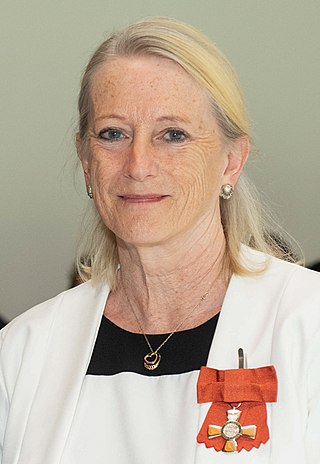
Castanea sativa, the sweet chestnut, Spanish chestnut or just chestnut, is a species of tree in the family Fagaceae, native to Southern Europe and Asia Minor, and widely cultivated throughout the temperate world. A substantial, long-lived deciduous tree, it produces an edible seed, the chestnut, which has been used in cooking since ancient times.

Hydroxytyrosol is an organic compound with the formula (HO)2C6H3CH2CH2OH. Classified as a phenylethanoid, i.e. a relative of phenethyl alcohol. Its derivatives are found in a variety of natural sources, notably olive oils and wines. Hydroxytyrosol is a colorless solid, although samples often turn beige during storage. It is a derivative, formally speaking, of catechol.

Oleuropein is a glycosylated seco-iridoid, a type of phenolic bitter compound found in green olive skin, flesh, seeds, and leaves. The term oleuropein is derived from the botanical name of the olive tree, Olea europaea.

Phenolic acids or phenolcarboxylic acids are types of aromatic acid compounds. Included in that class are substances containing a phenolic ring and an organic carboxylic acid function. Two important naturally occurring types of phenolic acids are hydroxybenzoic acids and hydroxycinnamic acids, which are derived from non-phenolic molecules of benzoic and cinnamic acid, respectively.

Amurensin K is an oligostilbene. It is a resveratrol tetramer found in Vitis amurensis. Preliminary tests have shown it to be an effective neuraminidase inhibitor against the influenza A virus subtype H1N1.

Melitidin is a flavanone glycoside. Melitidin was discovered in bergamot orange juice and exhibits statin-like properties so the juice seems to have hypolipidemic activity.

Brutieridin is a flavanone glycoside. Brutieridin was discovered in bergamot orange juice and exhibits statin-like properties as well as an anticholesterolaemic effect. As a result, the juice seems to have hypolipidemic (lipid-lowering) activity.

1-Deoxynojirimycin, also called duvoglustat or moranolin, is an alpha-glucosidase inhibitor, most commonly found in mulberry leaves. Although it can be obtained in small quantities by brewing an herbal tea from mulberry leaves, interest in commercial production has led to research on developing mulberry tea higher in DNJ, and on alternate routes of production, such as via Bacillus species.

Dame Juliet Ann Gerrard is a New Zealand biochemistry academic. She is a professor at the University of Auckland and the New Zealand Prime Minister's Chief Science Advisor.

Hemp protein is a plant-derived protein from the cannabis plant and is isolated from hemp seeds. The protein in hemp seeds is made up of the two highly digestible globular types of proteins, edestin (60–80%) and 2S albumin, with edestin also being rich in the essential amino acids.
Indrawati Oey is a New Zealand food scientist, full professor at the University of Otago.

María Guðjónsdóttir is a professor of food science at the University of Iceland.
Nazimah Hamid is a New Zealand food science academic, and as of 2017 is a full professor at the Auckland University of Technology.
Suzanne Georgina Pitama is a New Zealand academic, is Māori, of Ngāti Kahungunu and Ngāti Whare descent and as of 2020 is a full professor at the University of Otago in Christchurch, New Zealand.
Rachel C. Brown is a New Zealand scientist, professor and deputy head of the Department of Human Nutrition at the University of Otago.

Lynnette Robin Ferguson is a New Zealand academic, and as of 2021 is an emeritus professor at the University of Auckland. Ferguson has been a Fellow of the Royal Society Te Apārangi since 2016.

SallyAnn Harbison is a New Zealand forensic scientist. She leads the forensic biology team at the Institute of Environmental Science and Research, and is an associate professor at the University of Auckland. Harbison was appointed a Member of the New Zealand Order of Merit in 2021 and in the same year was elected as a Fellow of the Royal Society Te Apārangi.
Pleurotus geesterani, also known as pocket-sized oyster, is an edible species of fungus in the family Pleurotaceae, described as new to science by mycologist Rolf Singer in 1962. It can be cultivated, and it has gained popularity in China for its umami taste.

Marie Wong is a New Zealand academic food technologist, and as of 2020 is a full professor at Massey University.
The New Zealand Institute of Food Science and Technology (NZIFST) is a professional society for food scientists and technologists in industry and academia in New Zealand.













